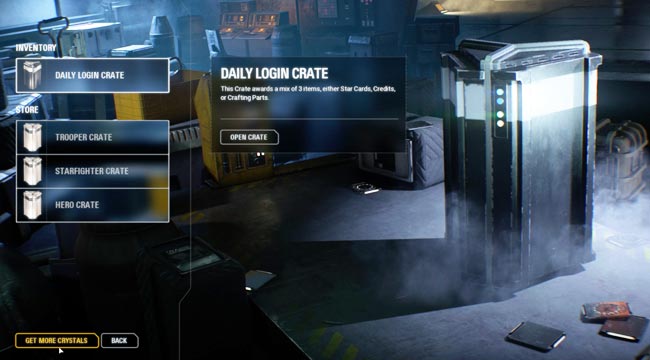
Gaming loot boxes have evolved from a supplementary and unnecessary part of a game to a near-mandatory money-sink for consumers if they hope to get the most out of their usually full-price purchase. No example of what has been called “predatory” pay-to-win loot box implementation is more egregious than Star Wars: Battlefront II‘s loot box system, which was rallied against so hard at launch, that EA and Dice removed it.
The overwhelmingly (literally Reddit history-making) negative response to the fact that players could dump hundreds of dollars into a game to have a competitive advantage has caught the eye of lawmakers across the globe, with some countries looking to ban loot boxes. In Hawaii, State Representative Chris Lee wants to take on the darkest blot of video game practices by introducing various stopgaps, such as making games with “gambling mechanisms” illegal to purchase until the age of 21.
In an interview with Gamespot, Lee called for a “generational transition” in government that will shine a light on the gaming industry’s more nefarious practices.
“We have to try and stand up for what is right. I think it is inevitable that, whether it was spurred by Battlefront or some of the recent big-title games just being so ridiculously exploitative of the player base, there is enough of generational transition in politics and positions of authority around the country and the world, that you have people who understand what the industry is doing and are willing to stand up and take action and do something about it. Inevitably, the industry will have to change.
Because more and more jurisdictions are going to start protecting their citizens from the kinds of exploitive and predatory practices that the industry has been employing lately. Inevitably, that means a better industry for everybody and better games for everybody.”
Some games still employ the loot box system without having the contents impact the game. Both Overwatch and Player Unknown’s Battlegrounds have aesthetic-only loot boxes that will simply give out clothing or voice lines for characters. It’s widely-known that updating and maintaining games is expensive, and loot boxes certainly helped fund the ongoing developing of titles without having to drop much traditional DLC, but in the case of PUBG, the real-money market for the clothing items in the loot boxes being opened led to a culture of cheaters and aimbots.
Ultimately, loot boxes may be leading developers to huge profits, but pay-to-win systems and markets that lead to poor gameplay for users who already paid full price for a game is putting a bitter taste in the mouths of gamers who can’t afford to drop hundreds of dollars per title, and deserve to not enter a cutthroat economy with millions of Chinese hackers when they hope to relax with a game after a long day of work.
(Via Gamespot)
